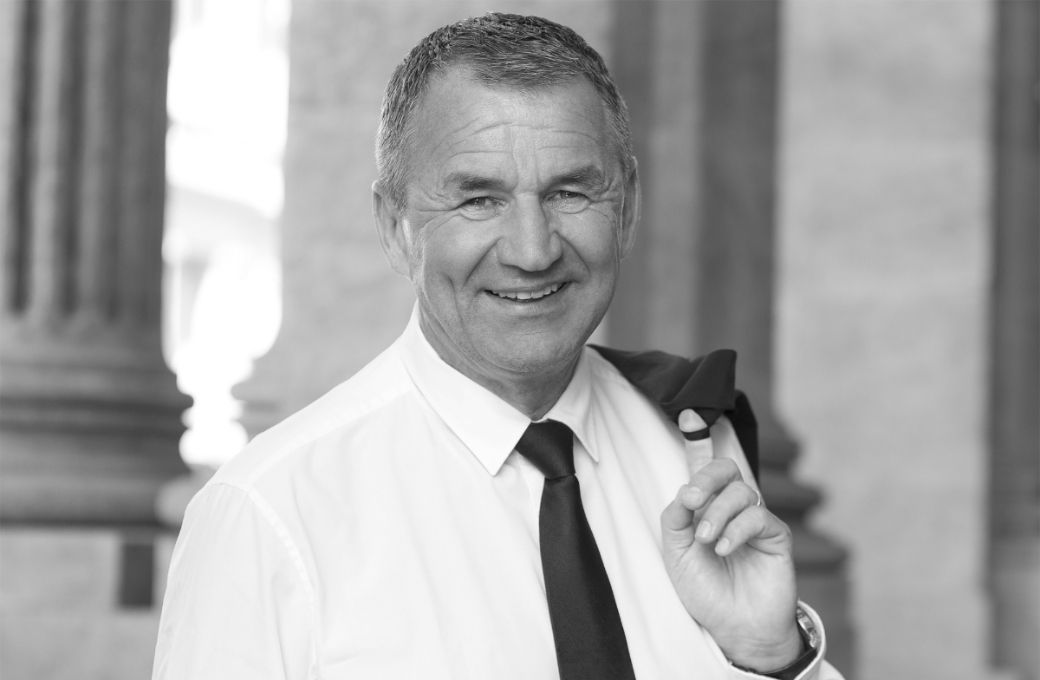It was not a situation for the faint-hearted: an administrative tangle of nearly 40 singers, two orchestras, two choruses and three opera houses to coordinate and run. An internal revolt simmering at the prospect of an outsider coming in to oversee an insular institution. And, though no one knew it at the time Per Boye Hansen became Artistic Director of the National Theatre and State Opera in Prague, a looming pandemic that would shut down theatres everywhere for more than a year.

But where others saw insurmountable obstacles, Hansen saw opportunities.
“Every situation has its limitations and strengths, and in Prague the strength is volume and diversity,” he says. “There are three opera houses, each with its own unique history: the National Theatre, the home of Smetana and Dvořák; the Estates Theatre, where Mozart worked; and the State Opera, with its history of Zemlinsky and Wagner. If you come to Prague, you can see seven or eight different productions in four or five days. Where else in the world could you do that?”
Once he was in the job, it didn’t take Hansen long to discover a deeper dimension to opera in the Czech Republic.
“This is a country where art and music have the strongest position in society,” he says. “In my country, Norway, there’s a lot of money and a fantastic opera house in Oslo, but opera occupies a very small niche. People don’t talk or write about it much. Here, people are engaged, they really care about opera. Which is a gift, because you feel that what you’re doing has relevance.”
The National Theatre will be at the center of Czech musical culture this season, with a gala marking the 200th anniversary of Smetana’s birth, and four of his operas in the repertoire, including a new production of The Secret. In addition, special programs and productions will mark the Year of Czech Music 2024, one highlight being a new opera by Czech composer Jan Kučera and director David Radok. That’s in addition to eight new opera productions, including two 20th-century masterpieces, Shostakovich’s Lady Macbeth of Mtsensk and Ligeti’s Le Grand Macabre. “It’s going to be a huge celebration,” Hansen says.
Hansen, 65, got started in the business early. His father, a concertmaster, took him to the opera when he was young. Entranced, Hansen tried his hand at violin and viola and singing before deciding that he didn’t have the talent to be a performer, and at the age of 22 started his own opera company. Over 10 years it morphed into an annual summer festival that was good training ground for the Bergen International Festival, which Hansen ran from 2005 to 2012. Prior management stints at Oper Köln and Komische Oper Berlin paved the way to the Norwegian National Opera, where he was artistic director from 2012 to 2017.
Hansen arrived in Prague in the summer of 2018, a fraught time at the National Theatre, which was still struggling to consolidate its 2012 merger with the State Opera. The two institutions had operated independent of each other for more than a century, and the rivalries and bureaucratic labyrinths built over that time were not easily dismantled. (The Estates Theatre has been part of the National Theatre since 1920.) Moreover, there was a rebellion brewing among a small group of artists and staff members unnerved by the prospect of a foreigner taking over their beloved opera.
Rather than diving into the melee, Hansen spent his first year working quietly in the background. He studied Czech composers and the histories of the theatres, went to Czech operas, began planning future seasons and researching new sources of income. He came away with an appreciation for what he faced and what needed to be done.
“On the positive side, I found a city and an institution with an enormous tradition,” he says. “And I completely understood why people would be skeptical of a foreign person coming in and taking control of the opera here. They have a unique tradition, and every right to protect it.
“At the same time, I found a culture that was a bit too closed, too self-centered. Opera is an international art form, and if you’re too wrapped up in your own environment, you can’t develop. You have to keep the tradition, but you also have to revitalize it. If you don’t do that, it will burn out.”
Hansen has maintained a careful balance between tradition and innovation, mainly by encouraging directors to put a fresh spin on familiar classics. A new production of Le nozze di Figaro at the end of last season typified that approach, with Barbora Horáková updating the story to a contemporary setting and inserting snippets of country music and rock ’n’ roll. Early last season a new version of The Bartered Bride by Alice Nellis recast one of the most beloved operas in the Czech repertoire as a rehearsal for the piece rather than a full-blown production. “There were very strong reactions against it when it premiered,” admits Hansen. “But being willing to experiment is essential. And after the initial criticism died down, we’ve had a full house for The Bartered Bride every night.”
Hansen’s research into local history paid off in a big way with Musica non grata, a four-year series of operas and concerts featuring composers active in interwar Czechoslovakia who were persecuted, and in some cases murdered, by the Nazis. Alexander von Zemlinsky, the music director of the State Opera (then the New German Theatre) from 1911 to 1927, served as the focal point of a mostly Jewish roster that included well-known names like Pavel Haas and Kurt Weill, and lesser-known lights such as Paul Abraham and Erwin Schulhoff. With the help of a friend in Germany, consultant Markus Klimmer, Hansen was able to secure a grant of four million euros from the German government to fund the project.
Some of the productions have been better than others, but they have all offered first-rate samplings of forgotten or neglected music while furthering two of Hansen’s goals: building on and opening up a hidebound tradition. “When we play Schulhoff or Zemlinsky, we are revitalizing an important part of the cultural history of Prague,” he says. “Zemlinsky also brought a lot of outside influences here, which can be a very strong inspiration for us. We should not only take care of this repertoire and be proud of it, but open it up and be in dialogue with the outside world.”
In that respect, Musica non Grata has been an unqualified success. Audiences have come from as far away as Japan and Australia to see the performances, which garnered positive press in a number of European countries, including Germany, France, Austria and the UK. This has helped with another of Hansen’s goals: to give the National Theatre a more prominent international profile. “It’s important for us to be in a position where people can see what we’re doing, so great artists are willing to come work with us,” he says. To date, that has brought directors like Calixto Bieto, Andreas Homoki and Jetske Mijnssen, and singers such as Ewa Plonka, Atalla Ayan and the young sensation SeokJong Baek.
Internally, Hansen is a hands-on manager. He helps select casts, grooming promising young singers for future lead roles. He attends rehearsals and is not shy about offering suggestions to directors and conductors. Still, he doesn’t see himself as an authoritarian figure. “Whether I’m liked or not I don’t know, but I think it’s important for me to be involved, so people know I’m watching and care about what’s going on,” he says. “Really, my job is to make other people great. That’s what it’s all about, developing and nurturing artists, letting them know they have a supportive environment here.”
That attitude and work ethic left the nascent staff rebellion in the rear-view mirror long ago, and with the Musica non grata funding and increased ticket sales Hansen has been able to add singers to his company (now nearly 50) and hire two capable music directors, Robert Jindra at the National Theatre and Andriy Yurkevych at the State Opera. He has also developed clear identities for the three houses: the National Theatre as the home of the Czech repertoire and the country’s best musical talent; the Estates Theatre for all things Mozart; and the State Opera for the Romantic repertoire and modern classics.
Administratively, Hansen admits he has a long way to go. “We still have big challenges in the structure, that’s obvious,” he says. But a life in opera has taught him to take the long view.
“Changes can only be made step-by-step, you can’t expect them to happen overnight,” he says. “I’m not saying everything we’re doing is right. But I do feel that we’re moving in a good direction. And if we take small steps every day, then I sleep very well at night.”
See our complete listings to performances at Prague National Theatre and State Opera
This article was sponsored by Prague National Theatre and State Opera


